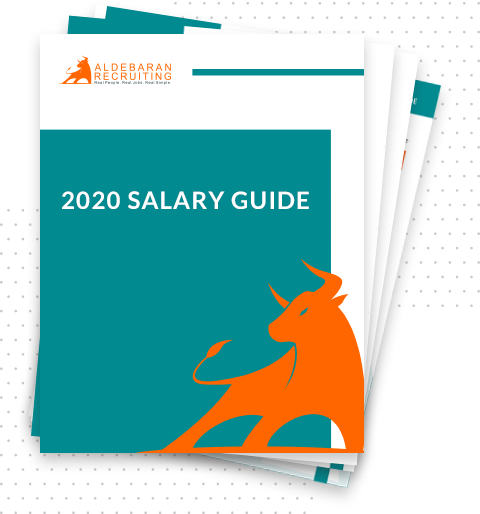When hiring in the life sciences industry, there is a specific strategy and specific interview questions you’ll want to ask prospective candidates.
This is important to ensure that you interview and hire the right types of candidates.
This could include the areas of biotech, pharmaceutical and healthcare.
This article will be geared toward hiring in this industry in general, mostly in the marketing, sales and public relations area of things.
Obviously hiring anybody in the sciences capacity, or what we would call a technical capacity, is going to be a little bit different.
In any case though, you can apply these principles when hiring across different segments and types of professionals in the industry.
Regardless of the position, it’s critical that you form your five best questions to ensure that you have a clear picture of what you need.
You want to be clear whether this role is going to be more marketing, public relations, investor relations or sales focused.
Either way at the end of the day it’s important to have a good starting point.
ASKING THE RIGHT QUESTIONS
Like I talk about in other blogs, the most important thing with any type of interview question is that you don’t lead the witness.
This is the biggest mistake interviewers make by asking simple questions that are too easy for candidates to answer.
You don’t want to give the candidate too much of a direction in terms of how to answer your questions.
You want your interview questions designed to get an answer that truly tests or checks in about their candidate experience.
For example, asking something like, “do you have experience marketing pharmaceutical brands?”
This question is leading the witness as it already tells me how to answer it.
It’s too easy for the interviewee to answer the question and figure out what you want to hear versus really understanding their experience.
QUESTION #1
A better way to ask the question, “tell me about the different types of clients or brands that you have experience working with.”
Asking the question this way leaves it open so that the candidate has to answer from their experience.
They have to tell you the types of brands, the types of clients or the types of products that they have worked with.
So again, it’s critical to ask open ended questions so that the candidate will tell you about their client and/or brand experience.
You’re also going to want to know the types of customers and products that they are used to working with.
You want to hear it from them without you giving them a jumping off point.
QUESTION #2
A second critical question is whether or not the candidate has experience working with direct consumer or working with healthcare practitioners.
You don’t want to ask, “do you have experience with direct to consumer” or “do you have experience working with healthcare professionals?”
That’s too easy of a question to answer with a yes or a no and of course they’re going to answer with what you want to hear.
If it’s a sales role, you can ask something like, “tell me about who you were selling to.”
That should elicit a response that will tell you if they were selling more direct to consumer or to healthcare practitioners or a combination of both.
The more clear you are about what you need in the position the better you will know if their experience is a match.
QUESTION #3
Another critical question is designed so that you learn about the types of projects, campaigns, etc. the candidate has experience with.
Do not ask, “do you have experience working with social media” or do you have experience with search engine optimization?”
These questions lead to witness and are easy to answer yes to.
Remember to ask open ended questions like, “tell me about the types of campaigns or projects you have experience working on.”
Have them tell you about their day-to-day.
It is critical for you to hear what their day looks like and to understand the types of campaigns and projects they have experience with.
QUESTION #4
The next question will gauge and determine what type of leadership or mentorship experience the candidate has or doesn’t have.
Depending on the role that you’re filling it may be important this person has management experience.
Or maybe it’s more important that they have hands-on tactical execution experience.
Do not ask a question like, “would you consider yourself hands off” or “would you consider yourself a strong leader?”
These these questions are too easy to just answer yes or no.
You do want to ask, “tell me about your tactical hands-on experience” or “tell me about your managerial experience.”
You could also ask, “tell me what your day looks like” or “tell me what percentage your managing others is hands-on.”
The point is to continue to ask open ended questions which has them tell you what their day-to-day looks like.
You want to hear their managerial and tactical hands-on experience so you know whether they’re a fit for the role that you’re filling.
QUESTION #5
The final important question on list is about salary.
Nowadays asking about salary is tricky because in certain states you can no longer legally ask for salary history.
If you are able to ask what someone’s most recent salary is, that’s a critical question.
If you can legally ask their most recent compensation was, both base and any incentives and benefits.
It’s important early on to find out what someone’s compensation expectations are.
You want to be sure that you’re in the ballpark when it comes to your budget before getting too far down the line.
This could end up being a huge waste of time if their expectations aren’t in your budget.
If you’re not able to directly ask about someone’s compensation you might have to figure out ways to learn what makes sense.
I like asking things like, “what makes sense for you in terms of salary for your next role?”
Or “what is a logical progression for you from your current salary to your next salary?”
You want to ask questions in a way that has a candidate think about what makes sense rather than just from what they would like.
Everybody wants to get paid a ton of money!
Candidates tend to think they can just ask for whatever salary they want and get it.
Asking them in a way that has them think from what’s logical, what’s fair and what makes sense is going to be much better.
This is going to give you a realistic number rather than a pie in the sky number that could shut things down.
CONCLUSION
These five questions are not as important as your contract, but more important in terms of the way that you ask them.
You want to ask open ended questions that don’t lead the witness.
Apply these principles and you will go along way to improve your interview process!
Looking for more great interview questions to add to your list? Here are some great ideas! https://muse.cm/1hLMaHT
Have questions or want to find out about working with us? Let’s chat!
https://aldebaranrecruiting.com/looking-for-talent/



